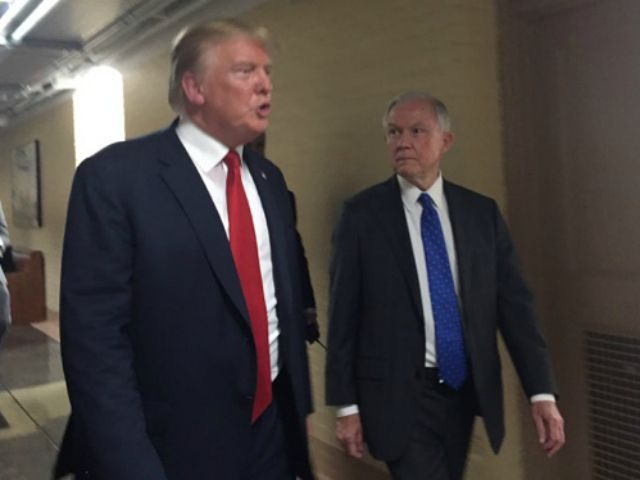From author T.A. Frank, an often-reasonable liberal, in the often-unreasonable pages of Vanity Fair:
We’ve reached a strange place. After the Republican Party’s panic-stricken, months-long search to find alternatives to Donald Trump—even taking aim at its own front-runner in Tuesday’s rebuttal to the State of the Union address—the buyer keeps saying the same thing: Yeah, the one you hate most? I’ll take him. Barring unexpected death, the G.O.P. primaries must end in either a Trump victory or a Trump defeat. It’s a bit like contemplating whether or not there’s life somewhere in outer space. Either possibility is hard to grasp. Yet one must be true.
The intellectual groundwork for Trump’s campaign, and the Republican civil war that he has unleashed, was laid without much notice in an unlikely place. In the summer of 2013, Alabama senator Jeff Sessions noted that passing immigration reform, at least as Washington understood the term, would be an unmitigated disaster. “Now is the time to speak directly to the real and legitimate concerns of millions of hurting Americans whose wages have declined and whose job prospects have grown only bleaker,” he wrote in a memo to his colleagues. “This humble and honest populism . . . would open the ears of millions who have turned away from our party. Of course, such a clear and honest message would require saying ‘no’ to certain business demands and powerful interests who shaped the immigration bill in the Senate.”
As it turned out, Sessions was right about the audience for his message. What he probably didn’t guess—what nobody guessed—was that the populism would be catalyzed by a member of the 1 percent of the 1 percent of the 1 percent. And that the messenger might not be super concerned about the “humble” bit.
There’s a lot to say about what strains of American political tradition best explain the rise of Trump, and answers will differ. (Don’t miss a learned one from John Judis in National Journal.) Trump is on many fronts less extreme than his competitors, but he is without doubt a radical. And he has irrevocably changed the course of our politics. If Trump wins the primaries, he becomes the new face of the Republican Party. This means a repudiation of a 30-year consensus in support of free trade, generous immigration, and even more generous military intervention. On all of these issues, much of Republican Washington feels far closer to Hillary Clinton than to Donald Trump.
Read the rest here.

COMMENTS
Please let us know if you're having issues with commenting.